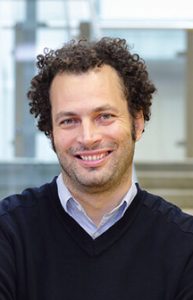
Julius Brennecke
Institute of Molecular Biotechnology
Austria
EMBO | EMBL Symposium
This conference will take place at EMBL Heidelberg, with the option to attend virtually.
Over the past two decades, advances in transcriptomic methods have led to the discovery of a very rich and diverse set of RNA transcripts, short and long, that serve as regulators rather than templates for protein production. Many of these transcribed elements are encoded in noncoding regions of the genome with other regulatory and structural DNA elements of known and unknown functions. While the catalogs of such elements are very rich, and an ever-increasing number are implicated in almost every known biological process, there are still many key open questions. Often these important problems are tackled and discussed within different sub-communities, including the mature fields of microRNAs (miRNAs) and piRNAs, and the emerging fields focused on longer linear noncoding RNAs (lncRNAs), circular RNAs (circRNAs), and other, non-transcribed yet functional genomic elements. This symposium traditionally brings together members of these communities, enabling researchers focusing on different classes of non-coding elements to interact and learn from each other. We are pleased to return to doing this at an in-person meeting this year, following the virtual edition held in 2021.
For 2023, the main pillars of the meeting will remain, with sessions on miRNAs, piRNAs, lncRNAs and circRNAs, alongside sessions showcasing less RNA-centric fields, such as heterochromatin and telomere biology, and transcribed regulatory regions. Topics that have received relatively limited attention in previous meetings will also feature, such as ncRNAs in plants and RNA therapeutics, which has become a particularly active field due to the current pandemic.
“The Non-coding Genome was a truly inspiring meeting, both in terms of topics and the excellent level of the talks, with a good balance of novel and published work. Thanks to the organisers for providing me the opportunity to present my latest work at this high-profile event, which also enabled networking with peers, publishers and industries.” – Roberto Simone, UCL, UK
Please see EMBL’s COVID-19 safety recommendations if attending the on-site event.

Institute of Molecular Biotechnology
Austria

Shanghai Institute of Biochemistry and Cell Biology
China

Aarhus University
Denmark

Massachusetts Institute of Technology
USA

Gregor Mendel Institute of Molecular Plant Biology
Austria

Yale University
USA
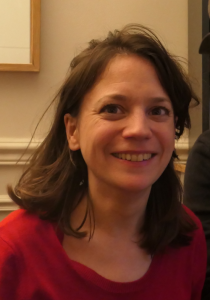
Institut Curie
France
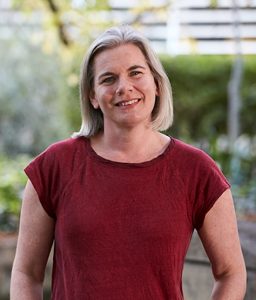
The University of Western Australia
Australia
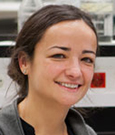
Universidad de Navarra
Spain
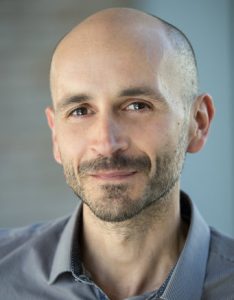
Max Planck Institute of Immunobiology and Epigenetics
Germany
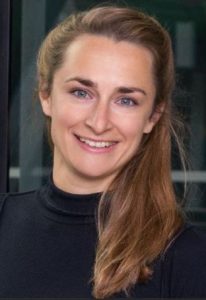
Institute of Molecular Biotechnology
Austria

Harvard Medical School
USA

National Institute of Diabetes and Digestive and Kidney Diseases
USA
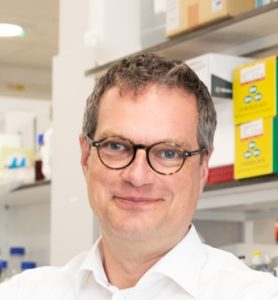
University of Cambridge
UK

Hokkaido University
Japan

Wageningen University & Research
The Netherlands
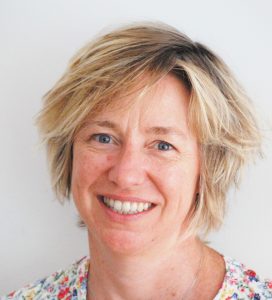
Epigenetics and Cell Fate Centre
France
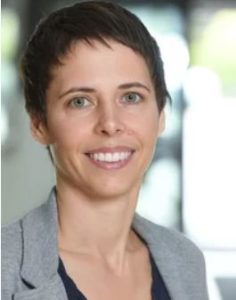
Max Planck Institute for Molecular Genetics “
Germany
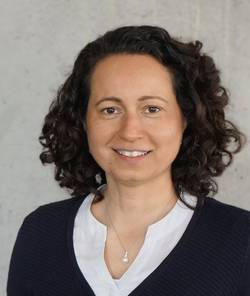
Julius-Maximilians-Universität Würzburg
Germany

The University of Tokyo
Japan
Scientific organisers
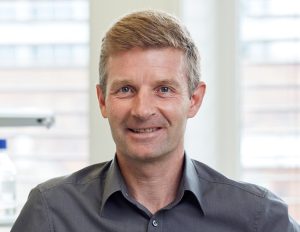
Friedrich Miescher Institute for Biomedical Research
Switzerland

Imperial College London
UK

UT Southwestern Medical Center
USA
Conference organiser
Got something to say? Tweet it! #EESNoncoding
| Time (Europe/Berlin) | Title |
|---|---|
| 11:30 – 13:00 | Registration and light refreshments |
| 13:00 – 13:15 | Opening remarks |
| Session 1: Small RNAs Chairs: Joshua Mendell and Ana Eulalio | |
| 13:15- 13:40 | Argonaute-catalyzed slicing and conformational dynamics David Bartel – Massachusetts Institute of Technology, USA |
| 13:40 – 14:05 | Changeability of piRNA production patterns negatively correlates with the efficiency of their biogenesis Yukihide Tomari – The University of Tokyo, Japan |
| 14:05 – 14:30 | Theme and variations: Emerging diversity in mechanisms of miRNA decay Katherine McJunkin – National Institute of Diabetes and Digestive and Kidney Diseases, USA |
| 14:30 – 14:55 | Small RNA functions in plant embryos Michael Nodine – Wageningen University & Research, The Netherlands Not available on demand |
| 14:55 – 15:25 | Coffee break |
| 15:25 – 15:50 | Regulation of protein activity by base pairing small RNAs Gisela Storz – National Institutes of Health, USA |
| 15:50- 16:05 | Natural and genetically engineered mammalian canonical RNAi in vivo Petr Svoboda – Czech Academy of Sciences, Czech Republic |
| 16:05 – 16:20 | agoTRIBE detects microRNA-target interactions transcriptome-wide in single cells Marc Friedländer – Stockholm University, Sweden |
| 16:20 – 16:35 | Casein kinase 1 and 2 phosphorylate a conserved cluster of argonaute to control microRNA function Vivek Nilesh Shuah – Chu de Québec-Université, Laval Cancer Research Center, Canada |
| 16:35 – 16:50 | Quantitative measurement of RNA-protein interactions in vivo Dmitry Kretov – Boston University School of Medicine, USA |
| 16:50- 17:20 | Coffee break |
| 17:20 – 18:05 | Keynote talk 1: Biogenesis, function and potential application of circular RNAs Ling-Ling Chen – Shanghai Institute of Biochemistry and Cell Biology, China |
| 18:05-19:30 | Dinner in canteen |
| 19:30 – 21:00 | Drinks in ATC rooftop lounge |
| Time (Europe/Berlin) | Title |
|---|---|
| Session 2: Non-coding genome and disease Chairs: Edda Schulz and Nadya Dimitrova | |
| 09:00 – 09:25 | Deregulation of long noncoding RNAs in cancer Nadya Dimitrova – Yale University, USA |
| 09:25 – 09:50 | CRISPR-Cas9 based endogenous RNA-targeting in bacteria – from discovery to applications Sahil Sharma – University of Würzburg, Germany |
| 09:50 – 10:15 | Leveraging bacterial RNA biology knowledge for the development of programmable RNA antibiotics Jörg Vogel – Helmholtz Centre for Infection Research, Germany |
| 10:15 – 10:40 | Unravelling the role of microRNAs in bacterial pathogen – host interaction Ana Eulálio – Imperial College London, UK Not available on demand |
| 10:40 – 11:10 | Coffee break |
| 11:10 – 11:25 | SINEUP RNA rescues molecular phenotypes associated with CHD8 suppression in Autism Spectrum Disorder model systems Marta Biagioli – University of Trento, Italy |
| 11:25 – 11:40 | Haploinsufficiency of human DGCR8 results in primate specific RNAs dysregulation and pluripotency defects Ana Colomer Boronat – University of Granada, Spain |
| 11:40 – 11:55 | Positive-feedback amplification of antiviral signaling by endogenous double-stranded RNAs in autoimmune diseases Doyeong Ku – Korea Advanced Institute of Science and Technology, Republic of Korea |
| 11:55 – 12:10 | The Alzheimer’s disease risk factor RBFOX1 is a major regulatory hub for Alzheimer-associated circRNAs Sambhavi Puri – Boston University School of Medicine, USA |
| 12:10 – 13:30 | Meet the speakers and lunch |
| Session 3: Unconventional RNA structure and mechanisms Chairs: Gisela Storz and Julius Brennecke | |
| 13:30 – 13:55 | Confined environments induce polarized paraspeckle condensates Archa Fox – The University of Western Australia, Australia Not available on demand |
| 13:55 – 14:20 | piRNA dynamics in mammalian genomes Eric Miska – University of Cambridge, UK |
| 14:20 – 14:45 | Diversity of spatial genome organization: Insights from Lepidoptera Ines Drinnenberg – Institut Curie, France |
| 14:45 – 15:00 | Molecular and physiological functions of circRNAs in the brain Sebastian Kadener – Brandeis University, USA |
| 15:00 – 15:30 | Coffee break & meet the editors |
| 15:30 – 15:45 | A direct protein-protein interaction network of cytoplasmic Drosophila piRNA pathway factors Mandy Jeske – Heidelberg University, Germany |
| 15:45 – 16:00 | Unistrand piRNA clusters have repeatedly emerged across the Drosophila genus to control endogenous retroviruses of the Gypsy family Susanne Bornelöv – University of Cambridge, UK |
| 16:00 – 16:15 | Epstein-Barr virus non-coding RNA steers ribosomes into virus-favorable translation Nara Lee – University of Pittsburgh, USA |
| 16:15 – 16:45 | Flash talks 1 |
| 16:45 – 18:45 | Poster session 1 (odd numbers) |
| 18:50 | Free evening |
| Time (Europe/Berlin) | Title |
|---|---|
| Session 4: Transcriptional regulation by non-coding RNA and DNA Chairs: Lingling Chen and Maite Huarte | |
| 09:00 – 09:25 | The ChAHP complexes Marc Bühler – Friedrich Miescher Institute for Biomedical Research, Switzerland |
| 09:25 – 09:50 | Contribution of lncRNAs to the control of X chromosome activity in early human development Claire Rougeulle – Epigenetics and Cell Fate Centre, France |
| 09:50 – 10:15 | Information processing at the Xist locus Edda Schulz – Max Planck Institute for Molecular Genetics, Germany |
| 10:15 – 10:40 | Recurrent innovation of germline genome regulation through paralog adaptation Peter Andersen – Aarhus University, Denmark |
| 10:40 – 11:10 | Coffee break |
| 11:10 – 11:35 | Epigenetic regulation by RNA G-Quadruplexes Jeannie Lee – Harvard Medical School, USA Not available on demand |
| 11:35 – 11:50 | Mechanisms of long noncoding RNA-dependent chromatin repression Aaron Johnson – University of Colorado, School of Medicine USA |
| 11:50 – 12:05 | Inseparable RNA binding and chromatin modification activities of a nucleosome-interacting surface in PRC2 Chen Davidovich – Monash University; EMBL-Australia, Australia |
| 12:05 – 12:20 | LINE1 regulate human T cell function by assembling chromatin into condensates Beatrice Bodega – University of Milan, Italy |
| 12:20 – 13:30 | Meet the speakers and lunch |
| Session 5: Genome organisation and epigenetic regulation (and development) Chairs: Marc Buehler and Jeannie Lee | |
| 13:30 – 13:55 | Inheritance of H3K9 methylation regulates genome architecture in early embryos Nicola Iovino – Max Planck Institute of Immunobiology and Epigenetics, Germany |
| 13:55 – 14:20 | Meta-analysis of RNA-chromatin interaction datasets Igor Ulitsky – Weizmann Institute of Science, Israel (remote talk) |
| 14:20 – 14:45 | Short stories about long RNAs during early mammalian development Joanna Jachowicz – Institute of Molecular Biotechnology, Austria |
| 14:45 -15:10 | Organization of the epigenetic information and its impact on transcription Frédéric Berger – Gregor Mendel Institute of Molecular Plant Biology, Austria |
| 15:10 – 15:40 | Coffee break |
| 15:40 – 15:55 | The lncRNA Sweetheart regulates compensatory cardiac hypertrophy after myocardial injury Sandra Rogala – Georg-Speyer-Haus Germany |
| 15:55 – 16:10 | Network-like condensation of satellite DNA into chromocenters safeguards nuclear mechanostability Franziska Brändle – ETH Zurich, Switzerland |
| 16:10 – 16:25 | The effect of lncRNAs on gene regulation and inter-chromosomal topology Philipp Maass – SickKids Research Institute, Canada (remote talk) |
| 16:25 – 16:40 | Genome organization and lncRNAs synergistically control the dynamics of Hox gene expression during development Philippe Batut – Princeton University, USA |
| 16:40 – 17:10 | Flash talks 2 |
| 17:10 – 19:10 | Poster session 2 (even numbers) |
| 19:10 – 21:00 | Conference dinner in the canteen |
| 21:00 – 24:00 | Party in the ATC foyer |
| Time (Europe/Berlin) | Title |
|---|---|
| Session 6: Long non-coding RNAs Chairs: Archa Fox and Claire Rougeulle | |
| 09:00 – 09:25 | Regulation of alternative splicing by short noncoding RNA Shinichi Nakagawa – Hokkaido University, Japan Not available on demand |
| 09:25 – 09:50 | Noncoding RNA roles in the coordination of DNA replication and stress signaling Maite Huarte – Universidad de Navarra, Spain |
| 09:50 – 10:15 | New functions and regulators of noncoding RNAs in mammals Joshua Mendell – Howard Hughes Medical Institute; UT Southwestern Medical Center, USA Not available on demand |
| 10:15 – 10:30 | A unified model for the surveillance of translation in diverse noncoding sequences Xuebing Wu – Columbia University, USA |
| 10:30 – 11:00 | Coffee break |
| 11:00 – 11:45 | piRNA-guided transcriptional silencing Keynote talk 2: Julius Brennecke – Institute of Molecular Biotechnology, Austria |
| 11:45 – 12:00 | The Unexpected Match: STAT3-NORAD Interaction, a Novel Link in Antiviral Defense Amir Argoetti, Yael Mandel-Gutfreund – Technion- Israel Institute for Technology, Israel (remote talk) |
| 12:00 – 12:15 | The interplay between lncRNA CHERR and chromatin remodelling complex in cell division and lung cancer development Giulia Guiducci – Barts Cancer Institute, UK |
| 12:15 – 12:30 | Lncfoxp3 controls cell identity and function of human regulatory t cells Stefano Abbiati – IFOM ETS – The AIRC Institute of Molecular Oncology, Italy |
| 12:30 – 12:45 | Closing remarks and poster prize |
| 12:45 – 13:30 | Packed lunch |
| 13:30 | Departure Optional: Bus to Frankfurt airport (Terminal 1) |
On-site registration fees include admission, conference materials, COVID-19 safety measures, meals and coffee breaks. Participants are expected to book and pay their own accommodation and travel expenses.
Virtual registration fees include access to all of the talks (livestreamed and on demand) and facility to submit questions.
| On-site Academia | €700 |
| On-site PhD Student | €600 |
| On-site Industry | €900 |
| Virtual Academia | €200 |
| Virtual PhD Student | €150 |
| Virtual Industry | €250 |
NO visa support letters will be issued until payment of the registration fee is confirmed.
Accredited journalists may be eligible to register for complimentary press registration. Registrants may be required to provide accreditation or equivalent proof of press membership after registration. Please contact Inna Boesselmann for more information. Please note that we do not offer complimentary registrations for editors of scientific journals.
Registration will be on a first come, first served basis. Your place can only be confirmed after payment of the registration fee. If you are added to our waiting list, please consider taking advantage of our offerings to participate virtually.
On-site participants: Types of payments accepted are international bank transfers and credit card payments.
Virtual participants: We are only able to accept card payments. In exceptional cases we can accept bank transfers. Please contact events@embl.de for details.
Only participants registering to attend the on-site event are eligible to submit an abstract. Abstracts will not be accepted from virtual participants.
After registration you can submit your abstract via a separate link that will be provided in the email confirmation. Alternatively, you can access the link on the confirmation page directly after registering. The same login credentials are used for both processes.
Please note:
Abstract body: The limit of 2000 characters refers to manually typed text and excludes spaces. If an error occurs try using a different web browser (preferably Google Chrome or Mozilla Firefox).
If you copy-paste the text into the form, hidden formatting might still be included which may cause the text to exceed the 2,000 character limit resulting in an error message. We recommend you clear all formatting before pasting in the text.
If you have special symbols in your text, make sure you are using Unicode characters, otherwise these will not be recognised.
Title: The title should not exceed 20 words. Only the first word of the title should start with a capital letter and the rest should be lowercase.
Authors and affiliations: Please fill in the author’s details as requested in the online form. The compulsory fields are: First Name, Last Name, Organisation Name (Affiliation or Company), Country and Email.
Kindly mark only one author in the role of First Author and please don’t forget to indicate who will be the Presenter.
Please enter your co-authors correctly via the system by adding accounts together with their organisation/institute. Do not copy-paste them into the body of the abstract text, as they will not be indexed in the abstract book.
Presentation types: When submitting your abstract, you can apply for an oral or poster presentation. A selection process will take place with the results announced 2-3 weeks after the abstract submission deadline.
For detailed instructions on how to submit a conference abstract, follow the instructions provided in this video.
Please check our FAQs pages for further information on how to submit an abstract.
Limited financial assistance is provided by the EMBL Advanced Training Centre Corporate Partnership Programme and EMBO in the form of both registration fee waivers and travel grants. These are available for on-site participants at EMBL Conferences and EMBO|EMBL Symposia, and for on-site and virtual participants at EMBO Workshops. We are currently working on securing funding for all virtual participants, and ask that you please apply for financial assistance for both on-site and virtual participation.
Your place in the meeting is only confirmed by paying the registration fee, which is mandatory even when receiving a fee waiver.
The fee waiver will cover the registration sum that you have paid to attend the course or conference.
The travel grant will cover the cost of travel to an on-site event (airfare, train, bus, taxi, accommodation, visa, and/or registration fees*) and is provided up to specified caps which are normally as follows:
–up to €400 for participants travelling to an EMBL Conference or EMBO|EMBL Symposium from within Europe.
–up to €1000 for participants travelling to an EMBL Conference or EMBO|EMBL Symposium from outside Europe.
–up to €500 for any participant travelling to an EMBO Workshop.
–up to €1000 for any participant working in Chile, India, Singapore or Taiwan travelling to an EMBO Workshop.
–up to €700 for any participant working in Croatia, Czech Republic, Estonia, Greece, Hungary, Italy, Lithuania, Luxembourg, Poland, Slovenia, and Turkey travelling to an EMBO Workshop.
*Registration fees are only covered for EMBO Workshops
The organisers may reduce the grant cap to accommodate more participants. Recipients will be notified of their travel cap amount when they are informed of the outcome of their application. Original receipts must be provided with your signature for all costs incurred within two months of completion of travel. Scanned copies cannot be accepted.
On-site participants
You may apply for financial assistance when submitting your abstract. In your application you will be asked to answer questions regarding why your lab cannot fund your attendance and how your attendance will make a difference to your career. Application for financial support will not affect the outcome of your registration application.
Virtual participants
If you are attending virtually, you can apply for financial assistance in the submission portal by the abstract deadline. Read the instructions on how to apply for financial assistance. Only submissions for financial assistance will be accepted. Presentation abstracts cannot be submitted here and will be declined.
In your application you will be asked to summarise your current work, answer questions regarding why your lab cannot fund your attendance, and how your attendance will make a difference to your career. Application for financial support will not affect the outcome of your registration application.
The scientific organisers will select the recipients of all financial assistance during the abstract selection process. Results will be announced approximately 6 – 8 weeks before the event start date, however for some events this may be delayed. Selection results do not impact your admission to the meeting. Selection is based on scientific merit, your current work or study location, the reasons for needing financial support, and the impact this event will have on your career.
Costs will be reimbursed after the meeting only once a reimbursement form and original receipts (from travel costs) have been received.
View our list of external funding opportunities and information on attending a conference as an event reporter.
For further information about financial assistance please refer to the FAQ page.
Accommodation is not included in the conference registration fee.
As further changes in our events are possible due to COVID-19, you should book flights, trains and hotels with flexible options and favourable cancellation conditions.
The hotels below have rooms on hold for participants until 13 September 2023, in some cases at special rates. Please email the hotel directly, quoting the booking code EES23-10 to confirm the exact price of the room.
Conference shuttle buses are free of charge for participants, and depart from designated bus stops near the hotels to EMBL and back, mornings and evenings.
You can now find the Conference Bus Schedule here.
The bus stops for this conference are:
View Conference shuttle bus stops and hotels in a larger map. Please note that not every bus stop will be used for every event. You can find the final bus schedule here.
Address: EMBL, Meyerhofstraße 1, 69117 Heidelberg, Germany. For further information on getting to EMBL Heidelberg visit Public Transportation to the Venue. For information about accommodation and local transportation please refer to the FAQ page.
All meals and coffee breaks are included in the registration fee. Our catering staff will prepare a wide variety of vegetarian meals, meat and fish dishes, soups, pasta, fresh fruit and vegetables, as well as a variety of desserts.
Please wear your badge at all times when serving yourself.
No food or drinks are allowed in the auditorium.
There are lockers available next to the stairs leading down into the Auditorium. You will find some of those equipped with sockets to charge your smartphone/tablet etc.
In most places the electricity is 220 volts AC (50 cycles). An adaptor and a plug that fits the German socket may be needed for your appliances/laptop (i.e. American, Japanese, etc.). A USB charging station for electronic devices is available at the registration desk.
If you are interested in purchasing an EMBL souvenir (products presented in the glass display in the registration area), please ask at the registration desk for more information.
Please read EMBL’s COVID-19 safety policy for on-site events.
Do not smoke in any EMBL building.
Eating and drinking is prohibited in the Auditorium and all laboratories.
Do not enter any restricted areas or the laboratories unless instructed to do so.
If first aid is required …
In case of fire …
Beyond first aid…
Please remember to bring your own medication, if needed, to the conference. Note that the next pharmacy is a 4-minute drive from the EMBL, but for many medications you will be required to see a doctor to get a prescription.
Ensure in advance that your medical insurance will cover you during your visit in the event that you do need to see a doctor while in Heidelberg. In any case, the EMBL Course and Conference Office will assist you to get to the pharmacy and a doctor of your choice if necessary.
Wi-Fi is available everywhere on the premises using the EMBL-Events network and the event specific password, which will be provided on site. The eduroam network (secure, world-wide roaming access service developed for the international research and education community) is also available.
‘’Lost and Found’’ are kept at the registration desk until the end of the conference.
There are lockers available on-site to store your luggage, which require a 2 EURO coin to operate. There is another luggage room on level E0, which is free to use but remains unlocked during the conference.
There is a nursing room available in the ATC Rooftop Lounge on level A29.
During the conference an EMBL Photographer may be taking photographs. If you would not like to appear in these, please inform the photographer or a member of the Course and Conference Office.
We can help printing your boarding passes/train ticket. Please send it to events@embl.de and collect your print-outs at the registration desk.
There is a room for prayer, mediation and yoga located on level E0 behind the Auditorium. Please be respectful of other participants using the room.
A variety of activities in Heidelberg can be found on the website of Heidelberg Marketing.
During the event we provide conference shuttle buses to and from EMBL. In addition, there is the public bus 39A that serves the EMBL campus and taxis can be easily booked at any time. Information on the conference shuttle buses can be found on the individual event website and more detailed information on travelling to EMBL can be found on our Travel Information page.
| Hello | Hallo |
| Goodbye | Auf Wiedersehen |
| Good morning | Guten Morgen |
| Good afternoon | Guten Tag |
| Good evening | Guten Abend |
| Good night | Gute Nacht |
| I’m sorry | Tut mir leid |
| Excuse me… | Entschuldigen Sie |
| How are you? | Wie gehts? |
| I’m fine thanks. And you? | Mir geht es gut , danke, und dir/Ihnen? |
| What is your name | Wie heisst du? Wie heissen Sie? |
| My name is | Ich heisse |
| Do you speak English | Sprechen Sie Englisch? |
| I don’t understand | Ich verstehe nicht |
| Please speak more slowly | Können Sie bitte langsamer sprechen |
| Thank you | Dankeschön |
| Where is the toilet? | Wo ist die Toilette? |
| Please call me a taxi | Bitte rufen Sie mir ein Taxi |
| How do I get to….? | Wie komme ich zum/zur…..? |
| A beer/two beers please | Ein Bier/zwei Bier bitte |
| A glass of red/white wine please | Ein Glas Rot/Weisswein bitte |
| The menu, please | Die Speisekarte, bitte |
| Is there a local speciality? | Gibt es eine Spezialität aus dieser Gegend? |
| I’m Vegetarian | Ich bin Vegetarier |
| It was delicious | Es war hervorragend |
| The bill, please | Die Rechnung, bitte |
| I have a headache | Ich habe Kopfschmerzen |
| I have a sore throat | Ich habe Halsschmerzen |
| My stomach hurts | Ich habe Magenschmerzen |
| I’m allergic to | Ich bin allergisch gegen |
| I need a doctor who speaks English | Gibt es einen Arzt, der Englisch spricht? |
Please note that only on-site participants are able to submit abstracts and participate in the poster sessions.
We are using an event platform for this conference. More information about the platform will be shared ahead of the conference.
Additional information can be found in our Code of Conduct.
It is important to stay healthy and move around, especially when you are attending an event virtually. We have put together a few coffee break stretches and yoga videos in the conference platform for you to enjoy during the event.
Please use the Q&A function in the event platform.
If you have any other questions, you can go to the Help Desk in the event platform. Click on ‘more’ on the top menu and click Help Desk.
The programme is planned based on the Europe/Berlin time zone, unless otherwise stated. Please take your time zone into consideration when planning your attendance.
Please find additional information including FAQs, terms and conditions, COVID-19 safety policy and travelling to EMBL on our Information for Participants page.
COVID-19 information for onsite events at EMBL Heidelberg can be found in our COVID-19 FAQs.
Bronze sponsor
Event sponsor
Event supporters
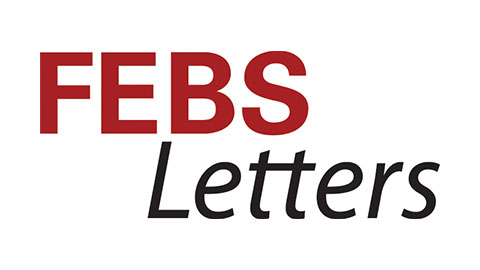
Media partners
Advanced Biology, a Wiley Online Library
Bio Essays, a Wiley Online Library
International Union of Biochemistry and Molecular Biology
FEBS Journal, a FEBS Press journal
FEBS Letters, a FEBS Press journal
FEBS Open Bio, a Febs Press journal
Molecular Systems Biology, an EMBO Press journal
Sponsorship opportunities
We offer a variety of event sponsoring possibilities, with the flexibility to select a set sponsorship package or combine individual sponsorship options to suit your event budget. Discounts are available for companies sponsoring multiple events at EMBL Heidelberg. View other conferences, or contact sponsorship@embl.de for further information.
If you are interested in becoming a media partner of this event, please visit our media partnerships webpage.
EMBL wishes to warn sponsors of EMBL conferences and courses of fraudulent schemes purporting to offer sponsorship opportunities on behalf of EMBL or affiliated with EMBL officials. One current scam campaign of which we are aware is conducted using the name ‘Judy Eastman’ (judy@gopcontact.a2hosted.com) and entails approaches to sponsors offering sponsorship opportunities on EMBL’s behalf. Please be kindly advised that all relevant communication regarding sponsorship of EMBL conferences, symposia and courses is handled by EMBL directly and is sent from an official EMBL account. EMBL does not work with any external providers on sponsorship acquisition.
Please also note that:
Suspicious communications purportedly from, for or on behalf of EMBL should be reported to EMBL at the following email address sponsorship@embl.de.
EMBO | EMBL Symposia promote scientific communication and collaboration in the European research area. They provide scientists with a platform to discuss and exchange ideas on forward-looking topics and new developments in the life sciences.
Topics emphasise upcoming developments and the interdisciplinary nature of related fields. Jointly funded and organised by EMBO and EMBL – and complementary to their respective courses, workshops, and conference programmes – the symposia promote scientific communication and collaboration.
All symposia are held in the EMBL Advanced Training Centre (ATC) in Heidelberg, Germany, or virtually.
Want to let others know you’re attending this event? Take a look at our shareable media and feel free to use them in your social media channels or presentations.
Date: 11 - 14 Oct 2023
Location: EMBL Heidelberg and Virtual
Venue: EMBL Advanced Training Centre
Deadline(s):
Abstract submission: Closed
Registration (On-site): Closed
Registration (Virtual): Closed
Organisers:
Contact: Inna Bösselmann